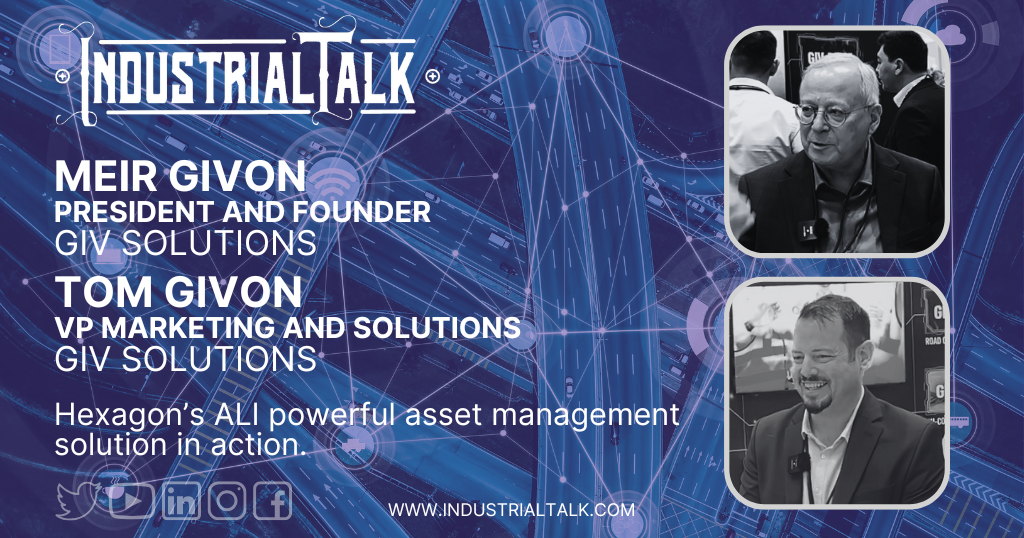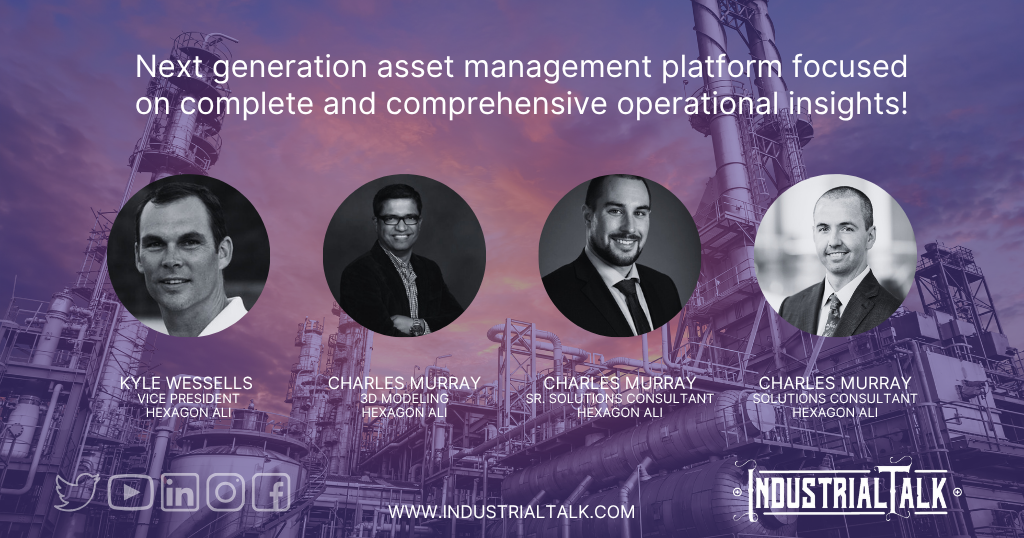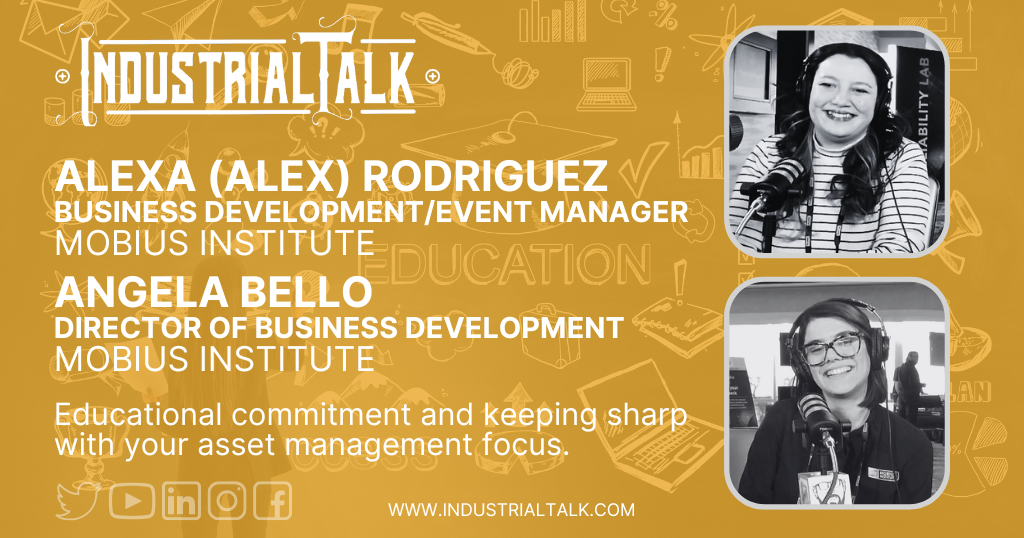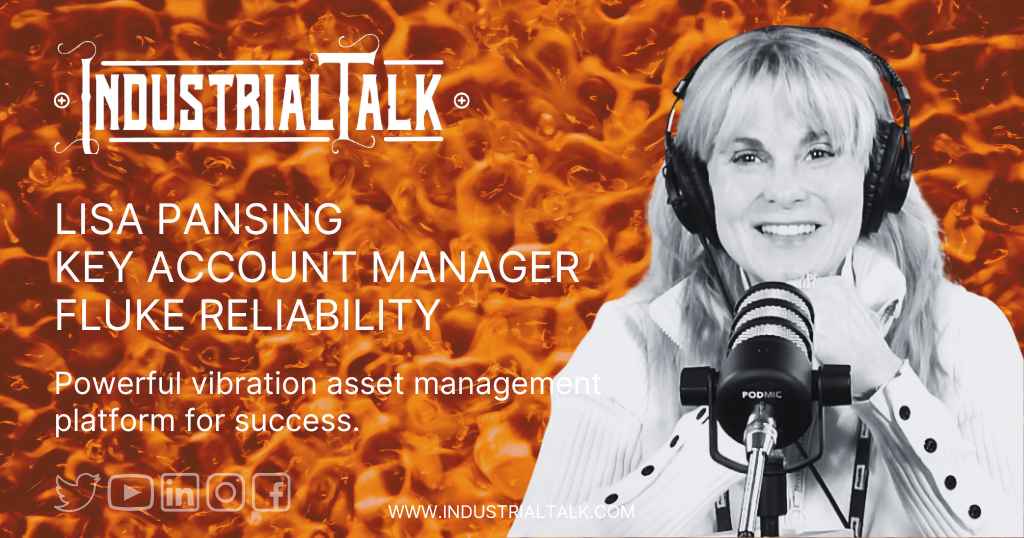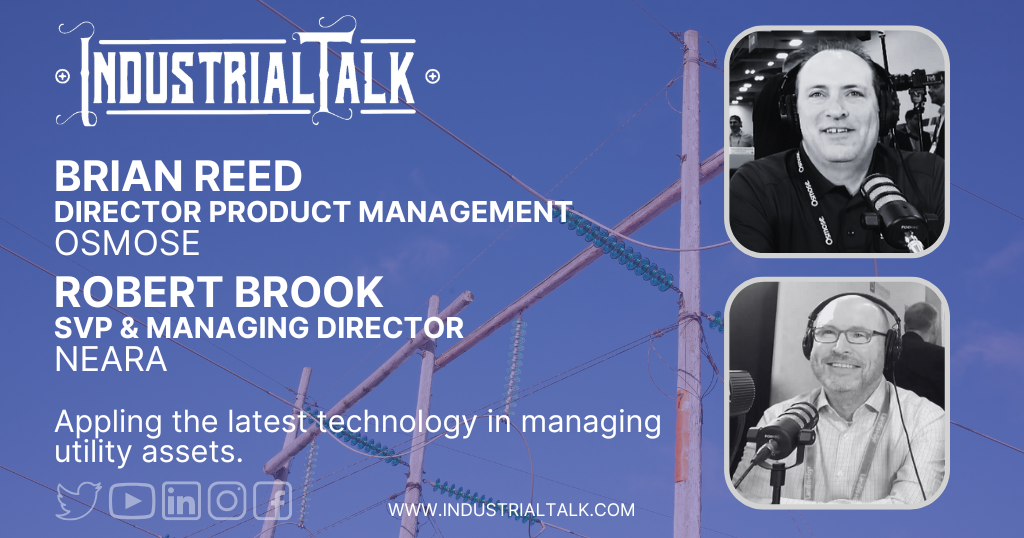Meir and Tom Givon with GIV Solutions
Industrial Talk is onsite at Hexagon LIVE and talking to Meir Givon and Tom Givon with GIV Solutions about “Hexagon’s ALI solution in action”.
Scott MacKenzie hosts the Industrial Talk Podcast, featuring industry professionals and their innovations. At Hexagon Live 2025 in Las Vegas, he interviews Meir and Tom from GIV Solutions, discussing their use of Hexagon AI for asset management and lifecycle intelligence. Meir highlights their change management approach, emphasizing the importance of psychology and training to empower users. Tom shares success stories, including the integration of 18 systems for the Tel Aviv metro line and the management of the National Police Academy’s cadets. GIV Solutions’ redundant, on-premises systems ensure reliability and continuous operation. The company’s growth and customer trust are underscored by their long-term contracts and numerous references.
Team Hexagon Asset Lifecycle Intelligence
Industrial Talk is onsite at Hexagon LIVE and talking to Kyle Wessells, Rahul Shinde, Ryan McOdrum and Matthew Peak at Hexagon ALI about “Game changing asset management platform”.
Scott MacKenzie hosts the Industrial Talk podcast, featuring discussions on industry innovations and trends. At Hexagon Live in Las Vegas, MacKenzie highlights the Asset Life Cycle Intelligence (ALI) platform and Asset Performance Management (APM) solutions. ALI integrates smart 3D design with SDx2 for continuous data synchronization, enhancing asset management. Hexagon EAM, a configurable system for enterprise asset management, supports compliance across various industries. APM uses machine learning to predict asset health and integrate sensor data, aiding in proactive maintenance. The conversation emphasizes the importance of data continuity and the role of AI in improving operational efficiency.
Alexa Rodriguez and Angela Bello with Mobius Institute
Industrial Talk is onsite at Xcelerate 2025 and talking to Alexa Rodriguez and Angela Bello at Mobius Institute about “Asset Management education for long-term success”.
Scott MacKenzie introduces an e-book titled “Today’s Industrial Renaissance,” a compilation of insights from industry leaders, available for free download on Industrial Talk. At the Xcelerate 2025 conference, hosted by Fluke Reliability, Scott interviews Alexa and Angela from Mobius Institute about their educational offerings. Mobius Institute, celebrating its 25th anniversary, offers various courses in vibration analysis, asset reliability, and other technologies, with over 9,000 students trained last year. They emphasize interactive, fun learning and keep their curriculum updated with new simulators and content. Contact information for Mobius Institute and Mobius Connect is provided for those interested in their courses and events.
Lisa Pansing with Fluke Reliability
Industrial Talk is onsite at Xcelerate 2025 and talking to Lisa Pansing, Key Account Manager at Fluke Reliability about “Powerful Vibration Asset Management Solution”.
Scott MacKenzie promotes the MEDivice 2025 event in Boston, organized by Informa, highlighting its importance for the medical device industry. At the Xcelerate 2025 event in Austin, Texas, hosted by Fluke Reliability, Lisa from Azima discusses the advancements in maintenance, reliability, and operations. Lisa emphasizes the importance of continuous improvement, the role of AI and ML in predictive maintenance, and the benefits of Azima’s wireless and wired solutions for vibration and temperature monitoring. She also touches on the future potential of augmented reality in maintenance. Scott encourages listeners to connect with industry professionals and stay updated on industry trends.
Robert Brook with Neara and Brian Reed with Osmose
Industrial Talk is onsite at DistribuTech 2025 and talking to Robert Brooks with Neara and Brian Reed with Osmose about “Technology and Pole Inspection”.
Scott MacKenzie hosts an industrial podcast from Distribute Tech in Dallas, highlighting the importance of data management in the utility sector. Guests Robert Brook and Brian Reed from Neara and Osmose, respectively, discuss their partnership to enhance utility data integration and decision-making. NIRA’s platform creates a digital network model using various data sets, including LiDAR and GIS, to simulate asset performance under different conditions. Osmose provides detailed asset records and preservative treatments to ensure data accuracy. The collaboration aims to improve strategic resiliency plans by prioritizing asset upgrades and optimizing investment strategies.

